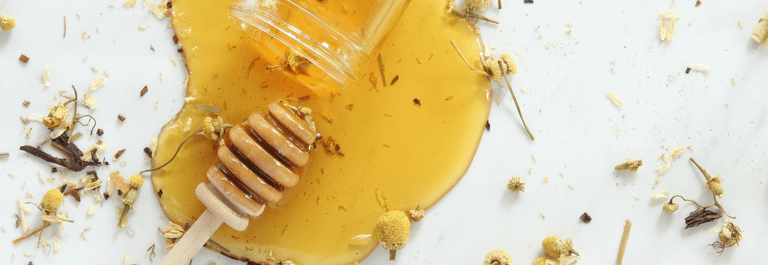Essential oils are often found on the list of ingredients when reading skincare label. But are they safe for the skin?
Some people love them and others clearly don’t.
But the short answer is: yes. It’s safe to use essential oils on your skin but people with sensitive skin need to be careful as they can cause a reaction.
In this blog, you’ll find everything you need to know to get started with natural skincare oils including:
- What are essential oils?
- Can you put essential oils on your skin?
- The best essential oils for your skin
- Alternatives to essential oils
What are Essential Oils?
Essential oils are plant extracts made from flowers, leaves, and seeds. These concentrated plant extracts are often used in aromatherapy because of their effect on health and wellbeing.
Essential oils are obtained through distillation and mechanical methods like cold pressing.
After the aromatic chemicals are extracted, they are combined with a carrier oil.
They are called essential oils because they retain the natural smell and flavor of their source.
Can you put Essential Oils on your Skin?
Some of the health claims of using essential oils are controversial. Some people prefer not to use them because they can irritate or damage the skin. This emphasizes how important it is to know and understand your body and its triggers.
In general, however, you absolutely can put essential oils on your skin. For this reason, essential oils remain a favorite ingredient in many natural skincare products.
If you would rather stay clear from essential oils, you can always find natural skin care without essential oils.
The Best Essential Oils for your Skin
Coconut Oil
Coconut oil is renowned for its natural ability to penetrate the skin quickly and help fight skin dryness. This makes it particularly useful when treating a dry skin condition like eczema. Its antibacterial and anti-inflammatory properties also help soothe skin.
Tea Tree Oil
Tea tree oil is known for its anti-inflammatory properties that help reduce irritation and ease itchiness. It also has antibacterial properties that can help reduce the risk of infection and prevent infection from spreading.
Sunflower Oil
Virgin sunflower seed oil is known for its powerful anti-inflammatory properties. Because it’s a non-comedic carrier oil, it’s highly absorbent and won’t clog the pores. It also contains vitamin E, an antioxidant that helps protect skin from free radicals. Finally, the presence of linoleic acid helps maintain the skin’s natural barrier and supports its ability to retain moisture.
Olive Oil
Truth be told, olive oil isn’t the answer for everyone. An excellent skin moisturizer, it helps give the skin a boost of hydration and helps ease itchiness. It also acts as a second skin barrier to protect dry and cracked skin, especially in the winter months. Plus, it helps calm inflammation.
What to Use Instead of Essential Oils
If you don’t want to apply essential oils directly to your skin, check out these natural skincare products instead:
Coconut and Sunflower Oil Soap: Soothe your skin with this gentle and nourishing soap bar. Whether you use it as a hand soap throughout the day or as a full body soap, you’re sure to enjoy soft, smooth, and supple skin.
Organic Manuka Skin-Soothing Cream: This natural oil-based balm contains just 6 ingredients, all of which are known for their healing benefits. Apply it anywhere on your body from head to toe, including delicate areas like eyelids and lips.
For the best of both worlds, check out our Body Care Essentials bundle.
Get started with your natural eczema treatments today
Do your skin a favor and get started with our natural eczema treatments today. Your skin will thank you!










